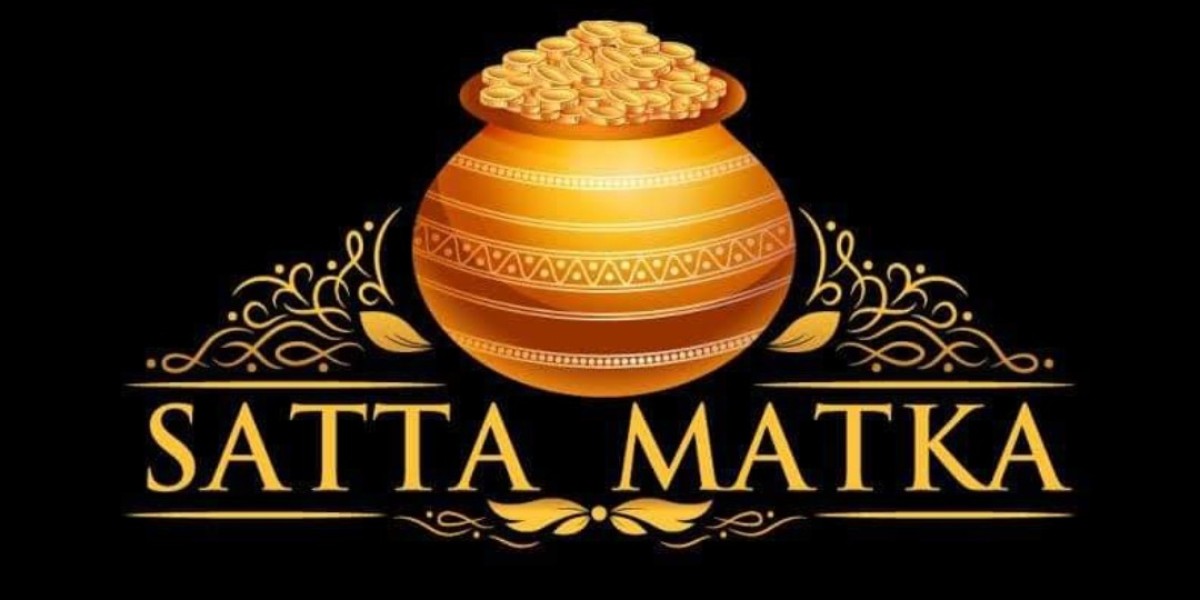Introduction to Gaming Satta Matka
Gaming Satta Matka is a popular form of gambling that originated in India. It has evolved over the years into a widely recognized gaming phenomenon, attracting players from all walks of life. In this article, we'll delve into the world of gaming Satta Matka, exploring its mechanics, popularity, risks, and tips for responsible gaming.
What is Satta Matka?
Satta Matka traces its roots back to the 1960s when it started as a form of lottery based on betting on the opening and closing rates of cotton transmitted from the New York Cotton Exchange. Over time, it transformed into a full-fledged betting game involving numbers.
The Mechanics of Gaming Satta Matka
Gaming Satta Matka operates on the principle of selecting a random number and betting on it. Players place their bets on various combinations of numbers, and if their chosen combination matches the result, they win.
There are different types of bets in Satta Matka, including single, Jodi, Panna, and more. Each type offers different odds and payouts, adding to the excitement of the game.
The Popularity of Gaming Satta Matka
Gaming Satta Matka has gained immense popularity due to its simplicity and the potential for high returns. It has become deeply ingrained in Indian culture, with players often viewing it as a form of entertainment and a chance to test their luck.
However, along with its popularity comes certain risks and challenges.
Risks and Challenges
One of the main challenges associated with gaming Satta Matka is its legality. While some forms of gambling are legal in certain parts of India, Satta Matka operates in a legal gray area, making it susceptible to crackdowns by law enforcement.
Moreover, gaming Satta Matka can lead to addiction and financial ruin if not played responsibly. Players may find themselves chasing losses or betting more than they can afford to lose, leading to adverse consequences.
Tips for Responsible Gaming
To enjoy gaming Satta Matka responsibly, players should set limits on their betting activities and stick to them. It's essential to know when to stop and seek help if gambling becomes a problem.
Additionally, players can explore alternative forms of entertainment and avoid relying solely on gaming Satta Matka for excitement.
Gaming Satta Matka and Technology
With the advent of technology, gaming Satta Matka has moved beyond traditional brick-and-mortar establishments to online platforms and mobile apps. This accessibility has made it easier for players to participate in the game anytime, anywhere.
However, it also poses new challenges in terms of regulation and responsible gaming practices.
Conclusion
Gaming Satta Matka offers a thrilling experience for players seeking excitement and the chance to win big. However, it's essential to approach it with caution and play responsibly to avoid the pitfalls associated with gambling.
Frequently Asked Questions (FAQs)
What are the origins of Satta Matka?
Satta Matka originated in the 1960s as a form of lottery based on betting on the opening and closing rates of cotton transmitted from the New York Cotton Exchange.
Is gaming Satta Matka legal?
Gaming Satta Matka operates in a legal gray area in India, with certain forms of gambling being legal in some regions.
How can one play gaming Satta Matka responsibly?
Players should set limits on their betting activities, know when to stop, and seek help if gambling becomes a problem.
Are there any successful strategies for winning?
While luck plays a significant role in gaming Satta Matka, some players develop strategies based on statistical analysis and historical data.
What role does technology play in the evolution of gaming Satta Matka?
Technology has made gaming Satta Matka more accessible through online platforms and mobile apps, but it also poses challenges in terms of regulation and responsible gaming practices.







